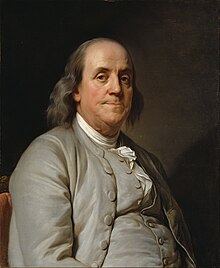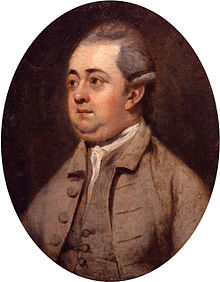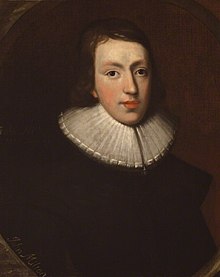
Rhetoric theorists
5 episodes
Episodes in this category also belong to the following categories:
Benjamin Franklin
Melvyn Bragg and his guests discuss the life and work of the scientist, writer, printer, diplomat and American founding father Benjamin Franklin.
1 March 2012
Featuring: Simon Middleton, Simon Newman, Patricia Fara
CultureMasonic grand mastersFellows of the Royal SocietyHonorary members of the Saint Petersburg Academy of SciencesIndependent scholarsAmerican male non-fiction writersTheorists on Western civilizationPhilosophers of literatureAmerican deistsAge of EnlightenmentSocial philosophersPhilosophy writersPhilosophers of technologyAmerican political philosophersActivists for African-American civil rightsWriters about religion and sciencePolitical activists from PennsylvaniaAphoristsRecipients of the Copley MedalRhetoric theoristsFellows of the American Academy of Arts and Sciences18th-century pseudonymous writersAmerican people of English descentAmerican philosophers of cultureHumor researchersAmerican male journalistsRecreational cryptographers, Writers from Boston, Writers from PhiladelphiaHall of Fame for Great Americans inducteesAmerican philosophers of religion18th-century American politicians, American Freemasons, Signers of the United States ConstitutionPhilosophers from MassachusettsMembers of the American Philosophical SocietyPeople associated with electricityCreators of writing systemsWriters about activism and social changePhilosophers of scienceAmerican slave ownersPhilosophers of historyAmerican autobiographers18th-century American writers, Founding Fathers of the United States, People of the American EnlightenmentSimple living advocatesIndependent scientistsAmerican philosophers of educationBertrand Russell
Melvyn Bragg and his guests discuss the influential 20th-century British thinker Bertrand Russell, widely regarded as one of the founders of Analytical philosophy.
6 December 2012
Featuring: A. C. Grayling, Mike Beaney, Hilary Greaves
PhilosophyNobel laureates in LiteratureBritish philosophers of languageGeorgistsEnglish political writersFree love advocatesSet theoristsAristotelian philosophersWriters about religion and scienceJerusalem Prize recipientsFellows of Trinity College, CambridgeEnglish logiciansPhilosophers of mathematicsBritish historians of philosophyEmpiricistsOntologistsMetaphysics writersBritish political philosophersFellows of the Royal SocietyMetaphilosophersTheorists on Western civilizationBritish ethicistsPhilosophers of literatureBritish free speech activists20th-century English philosophersAnalytic philosophersEnglish humanistsRhetoric theoristsAtheist philosophersEnglish political philosophersEnglish anti-fascistsEnglish people of Scottish descentPhilosophers of historyEnglish agnostics20th-century atheistsConsequentialistsEnglish socialistsPhilosophers of social scienceBritish philosophers of religionPresidents of the Aristotelian SocietyLogiciansPhilosophers of lawPhilosophers of sexuality19th-century English mathematiciansCritics of work and the work ethicSecular humanistsPhilosophers of technologyPhilosophers of economicsWriters about globalizationBritish philosophers of educationBritish philosophers of culture, English pacifistsBritish philosophers of logicCritics of the Catholic ChurchPeople from MonmouthshireAlumni of Trinity College, CambridgeLinguistic turnPhilosophers of loveEuropean democratic socialistsBritish consciousness researchers and theoristsWriters about activism and social changeEnglish Nobel laureatesMembers of the Order of MeritEnglish prisoners and detaineesUtilitariansIntellectual historians, University of Chicago facultyEnglish scepticsBritish critics of ChristianityEnglish people of Welsh descentUniversal basic income writersBritish philosophers of mind19th-century English philosophersBritish critics of religionsAcademics of the London School of Economics, British philosophers of science19th-century atheistsUniversity of California, Los Angeles facultyAnti-nationalists20th-century English mathematiciansEnglish essayistsFreethought writersBritish atheism activistsWriters about communism19th-century English essayistsEnglish male non-fiction writersEdward Gibbon
Melvyn Bragg and guests discuss the life and ideas of the writer of The History of the Decline and Fall of the Roman Empire, one of the most celebrated works of its kind.
17 June 2021
Featuring: David Womersley, Charlotte Roberts, Karen O'Brien
CultureEnglish rhetoriciansFellows of the Royal SocietyEnglish essayistsAlumni of Magdalen College, OxfordBritish MPs 1774–1780British critics of religionsEnglish ProtestantsEnglish male non-fiction writers18th-century English historiansPeople educated at Westminster School, LondonBritish MPs 1780–1784, Members of the Parliament of Great Britain for English constituenciesFreemasons of the Premier Grand Lodge of England18th-century English non-fiction writersTheorists on Western civilization18th-century English male writersIrony theoristsRhetoric theoristsBritish male essayistsHobbes
Melvyn Bragg discusses Thomas Hobbes, the great 17th century philosopher who famously said that ungoverned man lived a life that was ‘solitary, poor, brutish and short’.
1 December 2005
Featuring: Quentin Skinner, David Wootton, Annabel Brett
PhilosophyEpistemologistsMaterialistsNatural law ethicistsAlumni of St John's College, Cambridge17th-century English philosophersTheorists on Western civilizationEnglish physicistsPhilosophers of lawSocial philosophersBritish philosophers of educationRhetoric theoristsBritish critics of ChristianityPhilosophers of culturePhilosophers of language17th-century writers in LatinBritish critics of religionsCritics of the Catholic Church17th-century English writersPolitical realistsPhilosophers of mathematicsEnglish theologiansEmpiricistsOntologistsPhilosophers of mindMetaphysiciansPhilosophers of religionThomas HobbesEnglish political philosophersPhilosophers of sciencePhilosophers of history17th-century English male writersMilton
Melvyn Bragg examines the literary and political career of the 17th century poet John Milton, examining work such as Paradise Lost as well as his role as propagandist during the English Civil War.
7 March 2002
Featuring: John Carey, Lisa Jardine, Blair Worden
Mythopoeic writersChristian humanistsBlind writersEnglish male dramatists and playwrightsPeople from the City of LondonLiteracy and society theorists17th-century English dramatists and playwrights17th-century English philosophersEnglish writers with disabilitiesBritish philosophers of religionPamphleteersNeoclassical writersRhetoriciansBritish free speech activistsEpic poetsChristian poetsSocial philosophersMale essayistsAnglican poetsDeaths from kidney failure in the United KingdomMetaphor theoristsEnglish DissentersRhetoric theoristsAlumni of Christ's College, Cambridge17th-century writers in LatinLiterary theoristsCritics of the Catholic ChurchEnglish male poets17th-century English writersEnglish theologians17th-century English poetsEnglish Anglican theologiansWriters from LondonAnti-Catholicism in the United KingdomBlind poetsCalvinist and Reformed poetsSonneteersAnglican philosophers17th-century English educatorsEnglish essayistsEnglish political philosophersEnlightenment philosophersEnglish educational theoristsWriters about activism and social changeEnglish non-fiction writersEnglish republicans17th-century English male writers




